Germany, Iceland Call For UN Human Rights Meeting On Iran
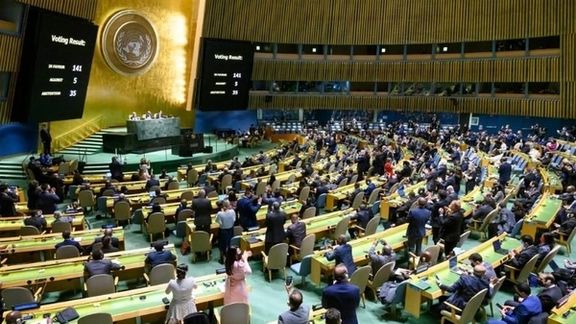
Germany and Iceland submitted a request on Friday on behalf of dozens of countries to hold a special session at the UN Human Rights Council on the ongoing protests in Iran later this month.

Germany and Iceland submitted a request on Friday on behalf of dozens of countries to hold a special session at the UN Human Rights Council on the ongoing protests in Iran later this month.
According to the letter signed by the two countries' ambassadors., the request called for the session "to address the deteriorating human rights situation in the Islamic Republic of Iran, especially with respect to women and children."
At least one-third of the UN Human Rights Council's voting members backed the proposal, as is required for meetings outside of the body's normal agenda, meaning its convening is a formality.
According to the German diplomatic mission in Geneva, dozens of others also signed up, bringing the total number of backers to 44.
Earlier in the day, the Islamic Republic’s foreign minister warned the UN Human Rights Council over organizing any session to discuss the situation.
Alleging that the Islamic Republic has "deeply exercised restraint" in the ongoing unrest – which has left over 300 protesters dead and about 15,000 detained, Hossein Amir-Abdollahian told UN Secretary General Antonio Guterres that such a meeting should be held for countries that "promote violence and terror."

Protests across Iran took place Friday with many demonstrations in Sistan-Baluchestan and Kordestan provinces with some other protests in metropolitan areas.
Ceremonies for the 40th day since the death of several protesters were held on Friday in cities across the country, with people chanting slogans against the Islamic Republic and security forces opening fire at them.
Having become the new normal in the city of Marivan, in West Azarbaijan province, night-time protests continued in the city with people setting trash cans on fire.
In addition to continuing fierce protests since earlier this week in the Kurdish-majority cities of Sanandaj and cities in the southeastern province of Sistan and Baluchestan, the provincial capital of Lorestan province, Khorramabad, was also the scene of intense clashes as people held a gathering for the 40th day after the death of Sam (Sepehr) Beyranvand.
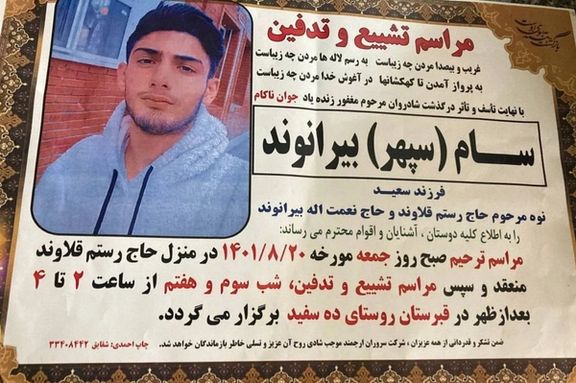
People in the cities of Mirjaveh and Rask, in Sistan and Baluchestan province near the border with Pakistan, were out chanting antigovernment slogans, describing the current protests as a “revolution.”
Security forces have again cracked down on protesters who took to the streets and chanted against the Supreme Leader and the IRGC in the province. Videos posted on social media show thousands marching in the streets of Zahedan and other predominantly Sunni Baluch population centers of Khash, Iranshahr (Pahreh or Bahreh), Rask, the border town of Pishin, strategic port city of Chabahar, and Saravan.
The leader of the Baluch people Molavi Abdolhamid also in his Friday sermon harshly criticized Supreme Leader Ali Khamenei’s rule.
Protesters in Zahedan and other cities took to the streets after Friday prayers chanting “Down with the Dictator,” “Death to Khamenei”, and “I’ll kill those who killed my brother,”. Videos also show people chanting slogans against the IRGC and its militia, the Basij as well as “From Zahedan to Tehran, I will give my life for Iran”.
Protesters also carried posters of Khodanour Lajoie, a young man shot to death on October 1. A photo of Lajoei chained to a lamppost by the police several months ago has turned into a symbol of government’s injustice in impoverished Sistan and Baluchestan.
Popular Sunni religious leader Abdolhamid once again blasted the use of lethal force against protesters and demanded punishment for those responsible for killing Baluch protesters and refuted claims of separatism brought against them by the government. Abdolhamid’s call for a referendum with the presence of international observers to decide the future form of government in Iran has angered hardliners. He recently expressed more liberal views about the role of women in society after being criticized by some Baluch activists for not mentioning women and acknowledging gender equality in his fiery Friday prayer sermons.
Reports about the alleged rape of a 15-year-old Baluch girl in June by a police commander in Chabahar, who has remained immune to prosecution, sparked protests in Zahedan on September 30. At least 100 protesters were reportedly killed in the province since then.
Gathering for the 40th day death anniversary of two protesters killed in Tehran’s ceremony spread to several neighborhoods in different parts of capital Tehran.
In some neighborhoods of Tehran, protesters chanted slogans against the regime for killing children and young adults. “Infanticidal regime, we don’t want,” chanted the protests.
The international support for the protests in Iran is getting stronger as France and UK are calling for punitive measures against the Islamic Republic and more than one million have signed a petition by Amnesty International to urge UN member states to take action.
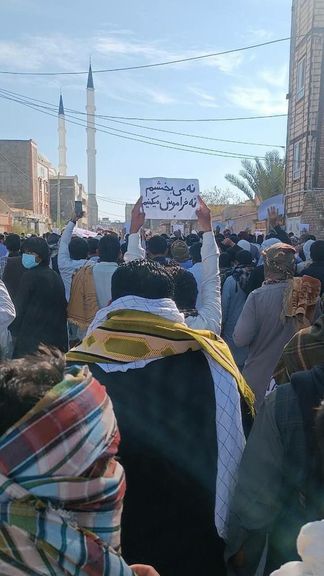
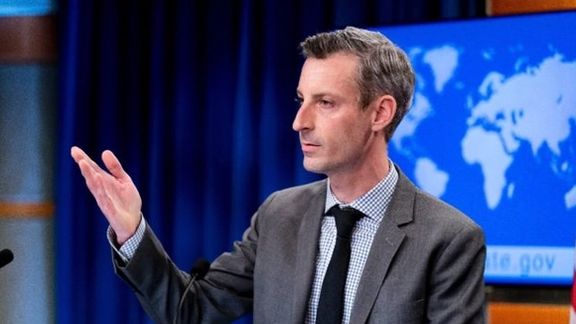
US State Department Thursday refused to characterize Iran's protests as a quest for democracy, repeating that its up to the protesters to say what they aspire to.
The antigovernment movement is clearly seeking to overthrow the Islamic regime, judging by daily slogans demonstrators chant and their social media posts, but the United States refuses to say that Iranian protesters want to change the regime and establish a democratic, secular form of government.
In his media briefing November 10, spokesperson Ned Price refused to say what the protest movement is about, insisting that it is up to the people involved to characterize their movement.
But before that, Price had already uttered words that essentially did characterize the movement. Speaking earlier during the briefing he said demonstrators demand reforms.
"We have spent a good deal of time at senior levels…speaking about ways that we can demonstrate our support for those brave Iranians, including many women and girls, who are peacefully demonstrating, taking to the streets, to call for the reforms that they’re demanding," Price said.
The Biden Administration’s reluctance to call the protests a movement demanding democracy and a new form of government started after its special envoy for Iran Rob Malley in October sent a tweet that sparked strong objections by Iranians.
Malley in his tweet said that Iranians were protesting to have the Islamic Republic “respect their human rights and dignity.” Iranians on social media strongly objected, saying ordinary people risking their lives in the streets had proven that they reject the clerical regime and want a new, democratic government and not just respect from an oppressive regime.
Malley apologized and the administration adopted its current position of refusing to characterize the demands of the protest movement, while it does call other movements around the world as protests for democracy.
Some argue that the administration is still interested in returning to the 2015 nuclear accord known as the JCPOA, and is reluctant to further antagonize the Iranian regime, which is already blaming “enemies” for instigating the protests.
After 18 months of JCPOA negotiations, Iran put forward demands in August that Washington rejected, but it has not declared an end to the talks.
Meanwhile, there have been many demands by US lawmakers and Iranian Americans to replace Malley as Iran envoy. An online petition launched in October has collected more than 127,000 signatures.
The petition was launched after Malley’s tweet. The sponsor said that the special envoy “minimized the Iran protest movement by portraying it as merely a quest by Iranians to have the government in Tehran ‘respect their human rights and dignity’.”
But the remark by Price about reforms, however, revealed that the administration still regards the protests as a reform movement despite the debacle with Malley’s tweet. Price was trying to argue that the administration is trying to galvanize support for Iranians, when he said demonstrators are taking to the streets, “to call for the reforms that they’re demanding.”
Already, several well-known Iranian Americans on social media have criticized Price for his remark.
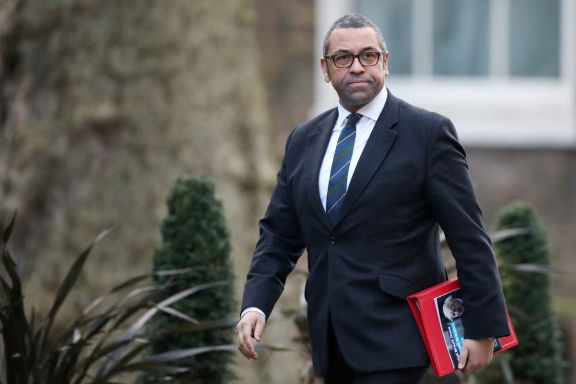
Britain has summoned the Islamic Republic’s chargé d’affaires over threats to UK-based journalists after Iran International’s journos were notified of "imminent" threats to their lives.
In a statement on Friday, Foreign Secretary James Cleverly said, "I summoned the Iranian representative today to make clear that we do not tolerate threats to life and intimidation of any kind towards journalists, or any individual, living in the UK."
“The UK will always stand up to threats from foreign nations,” read the statement.
Criticizing the Iranian regime, it added that the Islamic Republic responded to widespread internal protests with the suppression of freedom of expression and the targeting of media outlets operating in Iran.
It noted that more than 40 journalists have been arrested and detained since the current wave of protests began following the death in custody of 22-year-old Mahsa Amini. The journalists who reported the circumstances around her death have been also arrested.
The Metropolitan Police formally notified two of our journalists about an imminent, credible and significant risk to their lives and those of their families.
Earlier in the week, Iran’s intelligence minister implicitly threatened the UK of terrorist operations after the country decried the attempted menacing acts.
Iranian vice president Mohammad Hosseini also emphasized Thursday that the Islamic Republic now considers Iran International as a terrorist network. Iranian intelligence also arrested Elham Afkari Thursday, claiming that she was “an agent” of Iran International. Afkari is the sister of Iranian wrestler Navid Afkari who was executed in September 2020, after participating in protests.
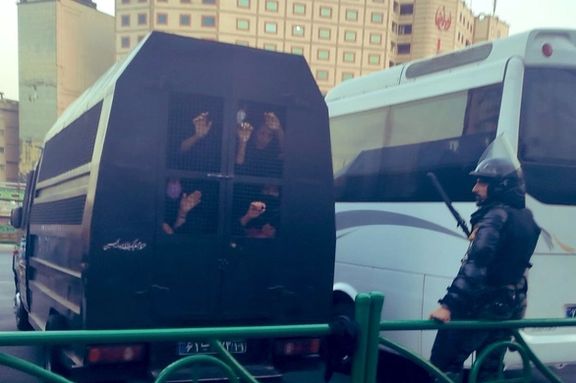
Both supporters and opponents have criticized Iran’s embattled Reform Front for a statement it issued this week presenting its position over current protests.
While critics from within the reform camp took issue with the slow reaction of the group and minimal demands, Iran’s conservatives lashed out at reformists for not criticizing foreign countries for their alleged support of the uprising. Others slammed the Reform Front for being part and parcel of the authoritarian regime in Tehran and its partner in crimes against human rights and dignity of Iranians.
The November 9 statement said that "the protests are the outcome of many years of denial of the people's problems [by the government] and refusal to recognize them, as well as being the product of accrued and unsolved issues, such as humiliation and suppression of the people. It added that many statements by officials, including the joint statement by the Iranian intelligence agencies [threatening protesters] are in fact part of the problem, and not part of a solution for the country's political deadlock."
Former reformist lawmaker Parvaneh Salahshuri quoted a part of the statement that said "The reform front is prepared to hold dialogue and exchange views with the government" on finding a solution for the country's current problems. Possibly referring to the isolation imposed on the reformists by the core of the regime and their lack of popularity among the people, Salahshuri asked: "Is the reform front aware of its status among the people and in the government?"
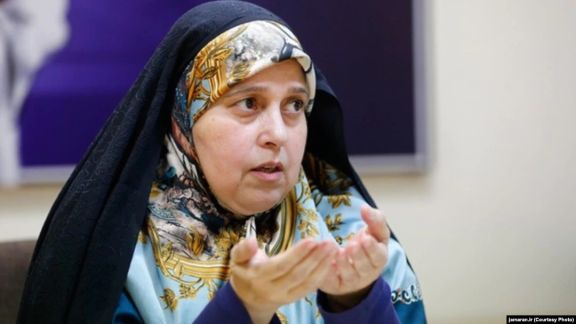
Iranian voters seem to have turned their back to reformists for their poor performance at the previous parliament and as part of the previous administration.
Political activist and influencer Mohammad Hassan Karimi wrote: "The reformists' statement will have very little if any impact on what is going on in Iran. The reform leaders' ideas are based on surrendering to and glorifying the absolute despotic rule of one individual, the Guardian Council's discretionary supervision of political processes and the military's increasing domination in the country...This could have been good one day, but not now!"
Meanwhile, the Revolutionary Guard’s (IRGC) daily newspaper Javan lashed out at the Reform Front in a commentary and called it repetitive and and an attempt to blame the government for their own problems. Javan also criticized the group "for its silence during the past 50 days and for not distancing itself from the rioters, and for taking advantage of the demands made during the protests by trying to usurp them."
Meanwhile, many social media users criticized the statement and described it as a desperate attempt by reformists to beg a share of political power from hardliners. In its two final paragraphs, the statement, which supported the government's position on the protests and criticized foreign governments' support for protesters, it offered to help the government: "We on our part would like to suggest practical ways out from the crisis and discuss if the government is inclined to listen to them and implement them."
Many twitter users have particularly attacked this part of the statement. Some Twitter users called this part the statement's main shortcoming. One Twitter user wrote that is one step ahead of the individual statements made by some reformist leaders, but at the same time, it is hundreds of steps behind the people's demands. The user also pointed out that it is not clear who the statement is addressing, and what is the reformists' next step if the government refuses to accept their way out of the crisis.
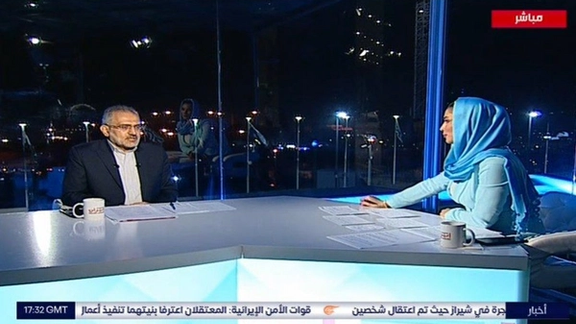
The Iranian vice president for parliamentary affairs has threatened that the Islamic Republic will respond to anyone involved in the current protests anywhere in the world.
Mohammad Hosseini made the remarks during a Thursday interview with Al Mayadeen TV, a media outlet close to Iran-backed Lebanese militant organization Hezbollah.
"We'll respond wherever necessary, even in other countries, as we did in the case of Iraqi Kurdistan. We may even take some actions and not announce them," he said.
The intelligence services of the US, the UK, France, Israel and Saudi Arabia are conspiring against the Islamic Republic round the clock, he claimed, adding that “even some European embassies” tried to provoke people during the recent protests and were consequently warned.
Referring to the ongoing protest and strikes across the country and its coverage by Iran International and other foreign-based Persian-language media, he said, “We now consider Iran International as a terrorist network. Many of its elements inside the country have been arrested.”
He added that “Iran International, Manoto, BBC, etc. have started a media tsunami against the Islamic Republic and its people,” claiming that “They based their work on the big lie of killing Mahsa Amini [by hijab police], someone who had been sick since childhood.”
On Thursday, Iranian intelligence arrested Elham Afkari, claiming that she was “an agent” of Iran International. Afkari is the sister of Iranian wrestler Navid Afkari who was executed in September 2020, after participating in protests. Earlier in the week, two of our journalists were notified of threats to their lives by the UK Police.